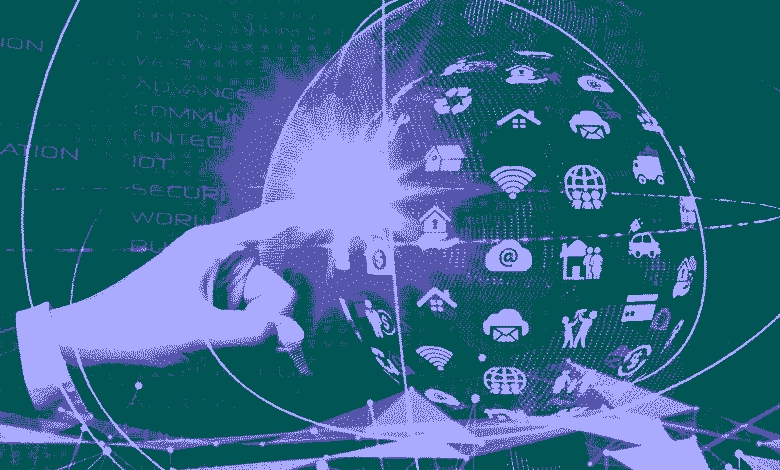Generative AI in Software Development: Transforming Coding in 2025

Generative AI is revolutionizing software development in 2025, empowering developers to code faster, smarter, and more creatively. From auto-generating code snippets to optimizing entire applications, this technology is reshaping how software is built. With 80% of developers now using AI tools (per a 2025 Stack Overflow survey) and generative AI reducing coding time by up to 40%, understanding its impact is essential for engineers, startups, and tech leaders. In this article, we’ll explore the rise of generative AI in software development through a 4-phase blueprint, offering insights, examples, and actionable steps to harness its potential.
Why Generative AI Is Transforming Software Development
Generative AI, powered by models like GPT-5 and CodeLlama, creates human-like code, documentation, and even UI designs. In 2025, it’s a game-changer for several reasons:
- Speed: Developers using AI tools like GitHub Copilot report writing code 40% faster, enabling faster project delivery.
- Accessibility: AI lowers the barrier to entry, helping non-coders build apps with natural language prompts (e.g., “create a to-do app in React”).
- Optimization: AI optimizes code for performance, reducing bugs by 30% and improving app efficiency (per a 2025 JetBrains report).
With the generative AI market in software development projected to hit $5B by the end of 2025, this trend is here to stay. Let’s dive into the blueprint to see how it’s shaping the future.
The Generative AI Blueprint: Revolutionizing Coding in 2025
The Generative AI Blueprint for Software Development offers a 4-phase roadmap to understand, adopt, and excel with AI-driven coding tools. Each phase provides insights and practical steps for developers and tech leaders.
Phase 1: Understanding Generative AI Tools for Coding
Generative AI tools like GitHub Copilot, Replit’s Ghostwriter, and Tabnine are leading the charge in 2025. These tools auto-generate code, suggest improvements, and even write documentation. For example, Copilot now supports over 20 programming languages, with 90% of its suggestions accepted by developers. Meanwhile, Ghostwriter excels in collaborative coding, helping teams brainstorm solutions in real time.
Actionable Tips
- Start with GitHub Copilot: Integrate it into your IDE (e.g., VS Code) to auto-generate code snippets.
- Try Replit’s Ghostwriter for collaborative projects, especially if you’re working in a team.
- Use Tabnine for personalized suggestions—it learns your coding style over time.
Phase 2: Using Generative AI for Faster Development
Generative AI accelerates development by automating repetitive tasks. In 2025, developers use AI to write boilerplate code, create unit tests, and even debug errors. For instance, AI tools like DeepCode identify bugs 50% faster than manual reviews, while CodeLlama can generate full functions from a single prompt (e.g., “write a Python function to sort a list”). This speed boost is critical in fast-paced industries like fintech and gaming.
Actionable Tips
- Automate boilerplate code: Use Copilot to generate React components or Django models instantly.
- Generate unit tests: Tools like Testim use AI to create test cases for your app in minutes.
- Debug with AI: Integrate DeepCode or SonarQube’s AI features to catch errors early.
Phase 3: Enhancing Code Quality with AI Optimization
Generative AI doesn’t just write code—it improves it. In 2025, AI tools optimize code for performance, readability, and security. For example, AI-driven linters like ESLint’s AI plugin suggest cleaner syntax, while CodeQL uses AI to detect security vulnerabilities, reducing exploits by 35%. Developers report that AI-optimized code runs 20% faster on average, making it a must-have for scalable applications.
Actionable Tips
- Use AI linters: Add ESLint’s AI plugin to your workflow for real-time code improvement suggestions.
- Secure your code: Run CodeQL scans to identify vulnerabilities before deployment.
- Optimize performance: Use AI tools like Snyk’s AI advisor to refactor code for better efficiency.
Phase 4: Navigating Challenges and Ethical Considerations
While generative AI offers immense benefits, it comes with challenges. In 2025, 30% of AI-generated code contains errors if not reviewed, according to a GitLab study. Ethical concerns also arise—AI models may reproduce biased or copyrighted code, raising legal risks. Additionally, over-reliance on AI can stunt skill development for junior developers. Addressing these issues is key to sustainable adoption.
Actionable Tips
- Always review AI-generated code: Use tools like CodeClimate to double-check for errors.
- Stay ethical: Avoid using AI to replicate proprietary code—check licenses with tools like FOSSA.
- Balance AI use with learning: Encourage junior developers to understand AI suggestions, not just accept them.
Case Study: GitHub Copilot Powers Fintech Startup CodeFin
CodeFin, a fintech startup, adopted GitHub Copilot in 2025 to accelerate its app development. By using Copilot to auto-generate 60% of their backend code, they reduced development time from 6 months to 3 months, launching their payment app ahead of schedule. The AI tool also suggested optimizations that improved transaction speed by 15%. CodeFin’s success shows how generative AI can give startups a competitive edge.
Key Takeaway: Leverage generative AI to speed up development while maintaining quality.
Poll: How Are You Using Generative AI?
Code Smarter with Generative AI
Generative AI is transforming software development in 2025, making coding faster, more accessible, and more efficient. From auto-generating code to optimizing performance, this technology is a game-changer for developers and businesses alike. By following the Generative AI Blueprint, you can harness its power while navigating its challenges. Whether you’re building the next big app or upskilling as a developer, now’s the time to embrace this revolution.
BytesWall Cheers Your Coding Journey!
Join the Conversation!
How has generative AI changed your coding workflow? Share your experiences in the comments, and let’s discuss the future of software development! Don’t forget to share this article with #AICoding2025.
Explore more tech insights and trends at BytesWall.com—your hub for the future of innovation!

Share your choice and why: